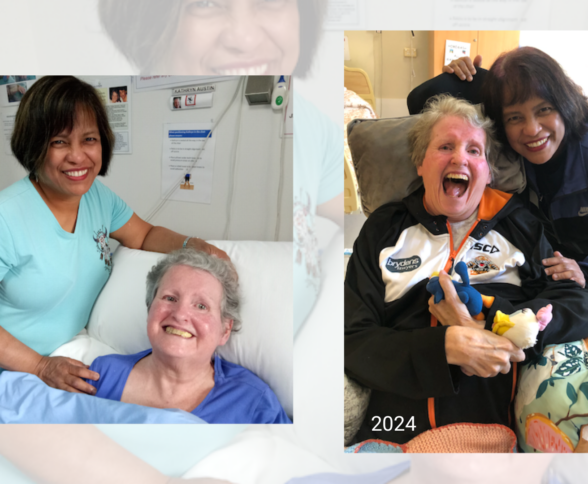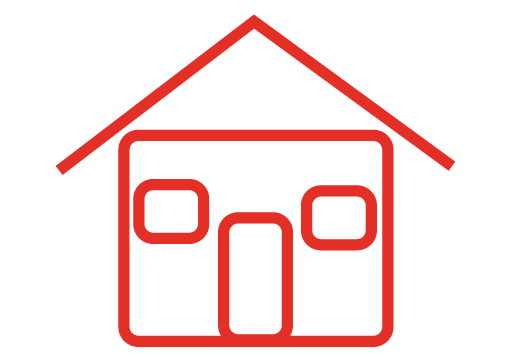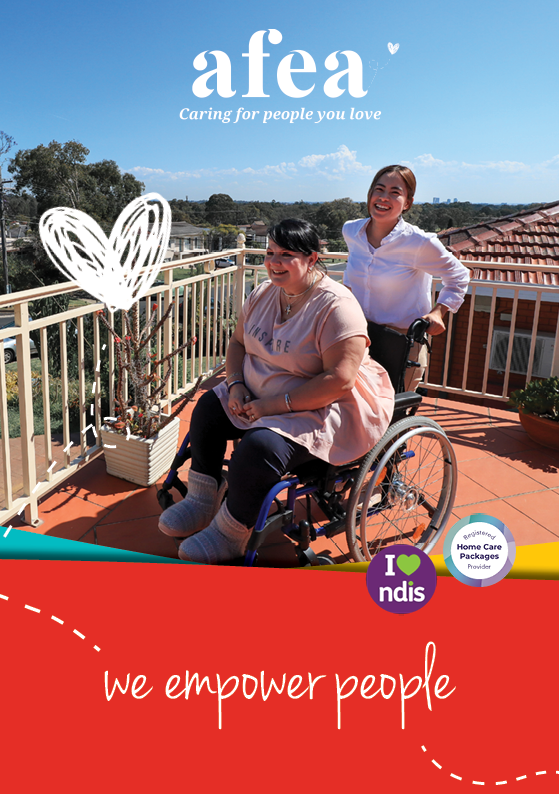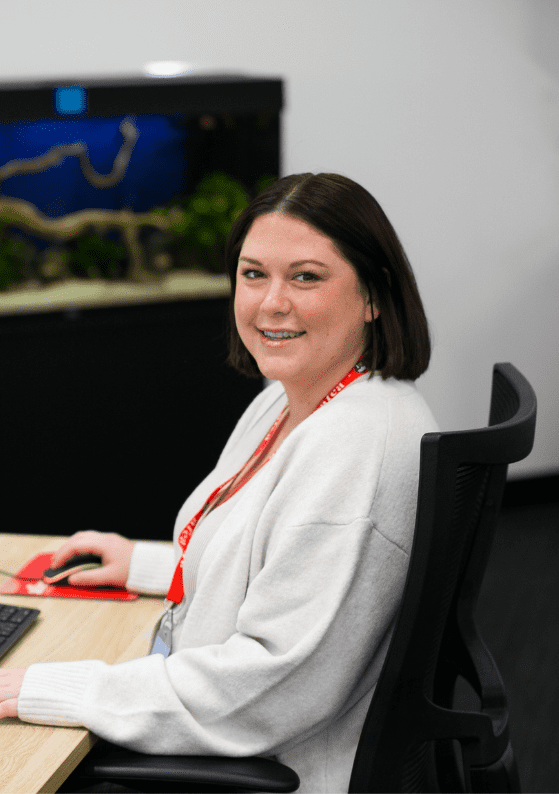Dreaming of moving into your own home? Specialist Disability Accommodation (SDA) funding from the NDIS can assist you in finding a house or apartment purpose-built to support your needs.
SDA is one of many home and living supports funded by the NDIS. If you’re wondering what Specialist Disability Accommodation is, you’ve come to the right place!
In this post, we’ll discuss what is included in SDA funding, the eligibility requirements and how it differs from Supported Independent Living.
What is Specialist Disability Accommodation?
Specialist disability accommodation or SDA is housing designed specifically for people with very high support needs.
If you are a person living with disability and you have very high support needs, you may need to live in a specially designed home.
For example, you may need wider doorways to fit a wheelchair or mobility scooter, or a reinforced ceiling to support a hoist. You may require assistive tech so that you can open the front door with a touch of a button.
All of these design elements can assist you in living independently or to have your support services delivered safely and easily.
All SDA providers must be NDIS registered and approved, and must follow the SDA Design Standard. The SDA developer or owner is also required to engage an accredited third-party SDA assessor, who is the only person who can issue a certificate of SDA category compliance.
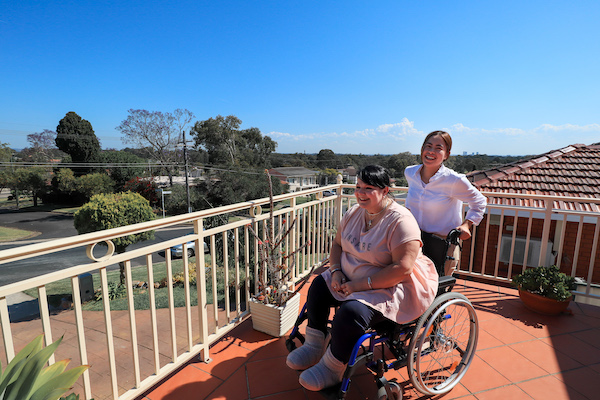
Who is eligible for Specialist Disability Accommodation?
SDA is only one of many home and living supports provided through the NDIS. SDA homes are only available to people who have SDA funding included in their NDIS plan.
To work out if you are eligible for specialist disability accommodation, the NDIA will ask you to complete a Home and Living Supports Request Form. This will help the NDIA understand if living in a specialised home will work for you. They may also recommend other home and living supports if they are a better fit for your needs. You may also be asked to provide other documentation, such as an assessment report from an allied health professional (e.g. an Occupational Therapist).
If you are deemed eligible for SDA, the NDIA will include SDA funding in your plan.
What is included in SDA?
Funding in your plan will include a design category and building type.
There are four SDA design categories. You can read the full definitions here, or read the simplified definitions below:
- Improved liveability: housing with better physical access, including features for people with sensory, intellectual or cognitive challenges
- Fully accessible: housing with a high level of physical access for people with physical and mobility challenges
- Robust: housing that is strong and durable and safe for you and others
- High physical support: housing with a high level of physical access for people with high-level support needs, e.g. ceiling hoist
There are also four building types:
- apartments
- townhouses, duplexes or villas
- houses
- group homes
This means with SDA funding, you may live with other NDIS participants, other people such as your partner, or even on your own, depending on your needs and circumstances.
Does SDA funding cover rent and utilities?
No, it doesn’t. SDA is funding for the cost of the home or building, including property maintenance or the cost of repairs. You’ll still need to pay rent (payable to the SDA provider), utilities and other day-to-day living costs.
The maximum reasonable rent contribution is 25% of the Commonwealth Disability Support Pension, as well as any Commonwealth Rent Assistance you get.
SDA also doesn’t include the funding for services or support you may receive in the SDA dwelling.
What’s the difference between SDA and SIL?
While SDA refers to the purpose-built accommodation dwelling itself, SIL or supported independent living is the support service you might require while living in your SDA.
Supported Independent Living is personal support for participants with higher support needs. Support workers can assist you with daily tasks around the home, such as grocery shopping or cooking your own meals, to help you build your skills and live as independently as possible.
SDA and SIL are separate under the NDIS. You can learn more about SIL in our guide.
You may receive SDA and SIL in the same SDA dwelling, with your providers working closely together to ensure your needs are met. You can also receive just SIL funding.
Let’s explore both options.
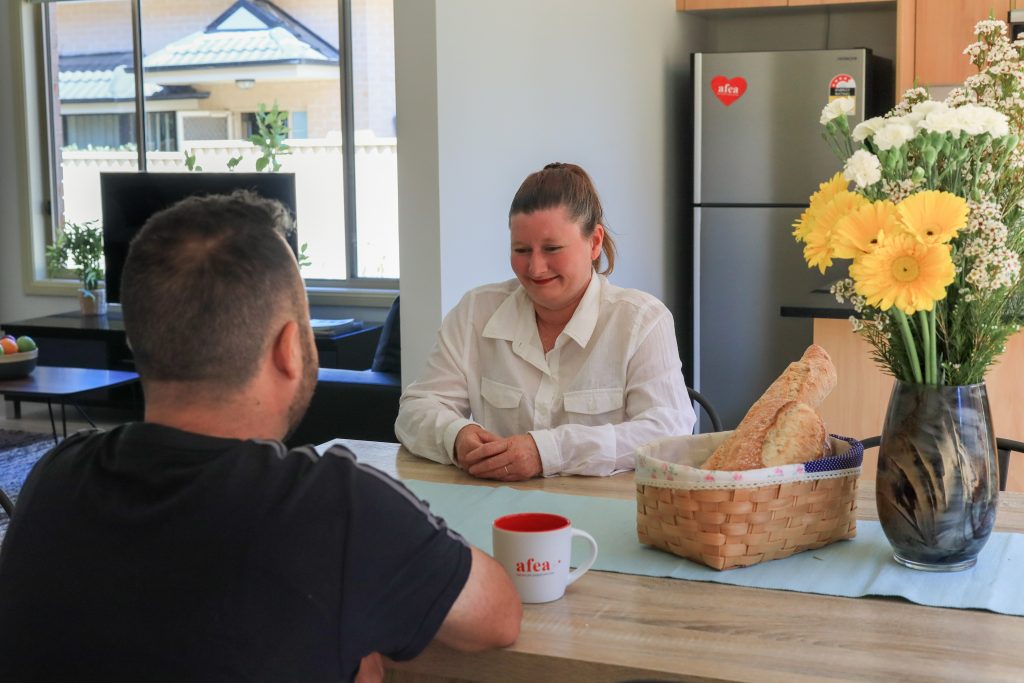
Onsite Support Services at your SDA dwelling
We partner with SDA providers to deliver onsite support services at their SDA apartments, combining fully accessible housing with compassionate care.
Afea’s Supported Independent Living Homes
If you require daily support, perhaps one of our SIL homes is the perfect place for you. Our Supported Independent Living Homes give you the opportunity to form friendships, connect with the local community and live independently – with the support of Afea Carers.
View our full list of SIL or SDA vacancies.




